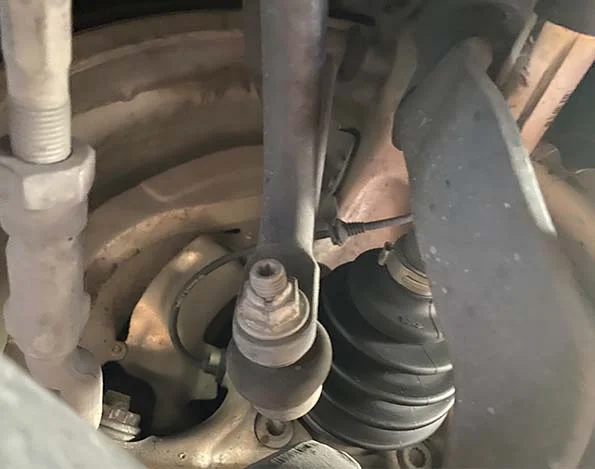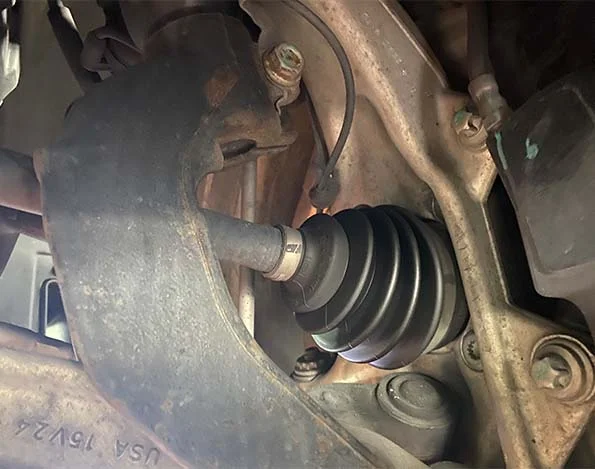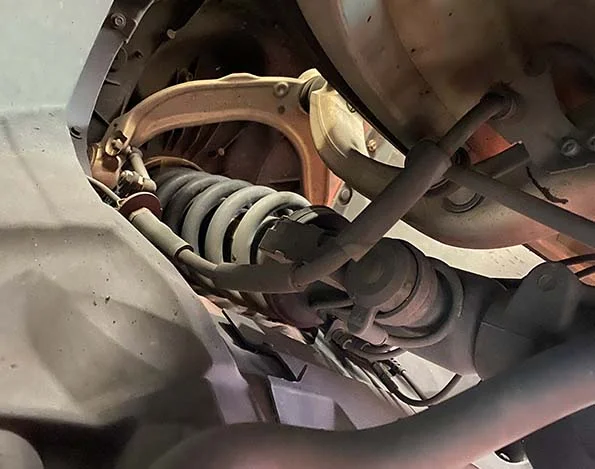Why Does My Car Make Noise When I Turn?
You get used to the noises your car makes every day, so when you hear a new clunk, thud, or click it can be concerning. Other than noise from the engine running and transmission shifting, the majority of the “regular” noises you hear come from the wheels and suspension, the components of your car that have direct or indirect contact with the road. The front suspension and steering system in your vehicle is complicated, with a variety of joints, bushings, and bearings working together to steer and keep your car on the road.
If you take a turn at an intersection and hear a new, distinct noise, there is a good chance you have a problem. Read on to learn about some of the more causes of noises when you turn.
What noise is your car making when you turn?
Like we said before, a lot of sounds can come from your car regardless if there is an issue or not. If you are noticing noises specifically when you are turning, take note of the type of sound you are hearing. There are some of the more common sounds you may hear:
- Popping
- Clunking
- Clicking
- Groaning
- Whining/screeching
- Creaking
- Knocking
A lot of these noises can be caused by problems in your vehicle’s suspension, but some can come from other issues like the power steering system.
Common causes
With so many components, it can be hard to get a read on exactly what is making noise when you take a turn. There are several areas in your suspension system that can wear out and fail, and we are going to go over them here.
1.) Ball Joints
Ball joints connect the suspension to the steering knuckle. Some vehicles only have lower ball joints, while others have both upper and lower connections. You can think of this component as a ball and socket joint on the human body, like a hip or shoulder. A vehicle’s ball joint consists of a metal ball set in a socket casing, filled with a grease lubricant and capped off with rubber boots to keep dirt and other road debris out.
If the protective boot becomes damaged and debris enters the ball joint, it can quickly wear out and fail. A bad ball joint will make a clunking or squeaking noise and may cause a shaky feeling in the steering wheel.
2.) Suspension bushings
Bushings assist in absorbing impacts and bumps coming from the road, smoothing out the ride of your vehicle. The bushings in your car’s suspension system are typically made from stiff rubber or polyurethane, both of which work well for absorption. Bushings are found in many of the connection points in a vehicle’s suspension system:
- Control arm bushings
- Sway bar bushings
- Struck/shock bushings
- Leaf spring bushings
Over time, bushings wear out. Constant exposure to bumps, harsh roads, heat, cold, and road salt can accelerate the deterioration of bushing material. Worn-out bushings can make an audible creaking noise when you go around a corner or hit a bump.
3.) Tie Rods
Tie rods connect the steering rack to the steering knuckle. Without them, you would not be able to steer your car. Like every other suspension component, they are subject to harsh conditions and over time, start to wear out. Bad tie rods can produce a knocking or clunking noise when you turn at low speeds. Additionally, you may notice looseness or vibration in the steering wheel and uneven tire wear.
4.) Sway bar end links
The sway bar reduces the amount of body roll when your car takes a corner. Sway bars are a length of metal tubing that passes from one side of your vehicle to the other. They are connected to the suspension with end links. Like other suspension components on this list, the end links reduce the amount of vibration and movement felt while driving.

Worn-out sway bar end links can produce a knocking noise when you go around a corner. Depending on the severity of the damage, you may also notice a lot of body roll when turning over 30 MPH. if this is the case, drive slowly and carefully to a qualified mechanic.
5.) CV joints
CV joints allow power to be delivered from the transmission to the wheels. On the front wheel and all-wheel drive vehicles, the front outer CV joints allow power to get to the wheels even during a turn.

The rubber boots that protect the CV joints from the debris can wear out or tear. When this happens, sand, dirt, and other debris can get into the joint and cause it to fail. When your car has a bad CV joint, you will hear a clicking or popping noise while you turn. The noise will usually be louder if you start accelerating through a turn.
6.) Power Steering
The power steering system makes it easier to turn the wheel of your car. When components, like the pump, start to get old or the fluid gets low, you may notice a whining noise when you turn the wheel.
7.) Shocks and struts
The mounting points for the shocks/struts in your vehicle are typically buffered with rubber or polyurethane. When this material wears out, a loud, metal-on-metal clunking sound can be heard when turning or going over bumps.

Let Becker Service Center diagnose the noise you are hearing!
As you can see, there are a wide variety of components that can make a noise when you take a turn. Many causes of suspension noise can become safety hazards if they are left unaddressed. The technicians at our Naperville repair shop will get to the bottom of the issue quickly, and recommend the repairs needed to stop the noise and keep your car handling as it should. Give us a call or schedule an appointment today!